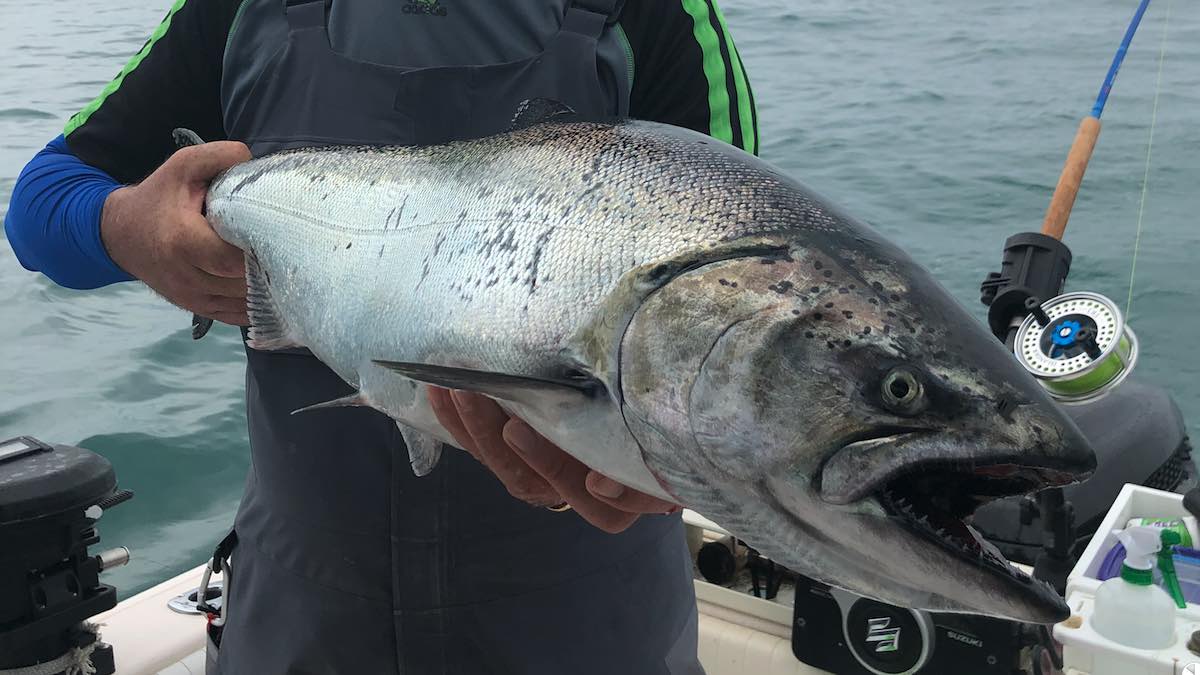
On Monday, July 6 from 12 p.m.-1:30 p.m., The Public Fishery Alliance is inviting the public to join in an “information rally” at the downtown DFO office located at 401 Burrard Street in Vancouver (on the corner of Burrard and West Hastings). Guest speakers to date include: Angler and conservationist Dave Brown, BC Conservative MP Bob Zimmer, Pacific Angler’s Jason Tonelli, South Vancouver Island Anglers Association’s Chris Bos, and First Fish Charter’s Warren Barker.
While this isn’t the first time there has been an an organized effort in recent times, such as the July 15th, 2019 protest, or the May 1st, 2019 protest at Minister Jonathan Wilkinson’s constituency office in North Vancouver, it’s clear concern is growing substantially for sport fishermen and the economy of BC communities who depend on the $1.1 billion industry that supports over 9,000 jobs.
Most recently, a letter was sent by the Fraser River Sportfishing Alliance (FRSA) to the Minister of Fisheries, Oceans and the Canadian Coast Guard, Hon. Bernadette Jordan, P.C., M.P.. As far as this magazine knows, it has gone unanswered. The letter (download the letter here), dated July 2, 2020 states, “Recent announcements demonstrate that the department does not seriously consider the commitment and investment by the public fishery in our resources and a sustainable future.”
Who is the Fraser River Sportfishing Alliance?
The FRSA is a collective voice of the recreational sport fishing community, that has called on the Department of Fisheries and Oceans Canada (DFO) several times (view past letters here). As the cumulative frustration of DFO’s “politics before science” management strategy and deaf ear policy continues to peak, it’s not surprising that more organizational efforts have cumulated into such a group as the the Public Fishery Alliance.
Who is the Public Fishery Alliance?
The Public Fishery Alliance (PFA) began as a spontaneous grass roots response to the 2019 blanket closures that eliminated Chinook fishing opportunities over keys areas of the BC’s south coast public fishery to protect weak runs of Upper Fraser River Chinook, regardless of whether these runs occurred in the affected fishing areas or not. In 2020 the group expanded to include anglers, fishing organizations, recreational fishing interests, guides, salmon enhancement and restoration volunteers beyond the lower mainland region where PFA originated. Dave Brown, a nationally recognized angling award recipient, is one of the principal voices behind this organization. “We are fighting to protect your right to fish in fresh and saltwater both today and for future generations. Your right to fish is being threatened by extreme environmental groups, government underfunding and mismanagement. The Public Fishery Alliance is your opportunity to have a voice and to be heard. It is not here to replace other organizations, we are here to partner with regional and fishery specific organizations to give you a much louder voice and influence. The PFA is a product of decades of fisheries mismanagement and neglect which has finally come to a head over Upper Fraser River Chinook stocks. It is a manifestation of the frustration after repeated warnings given to Fisheries and Oceans that these stocks were in trouble and required a concerted recovery program that did not rely solely on restricting and now eliminating highly valuable ocean and in-river fisheries.”
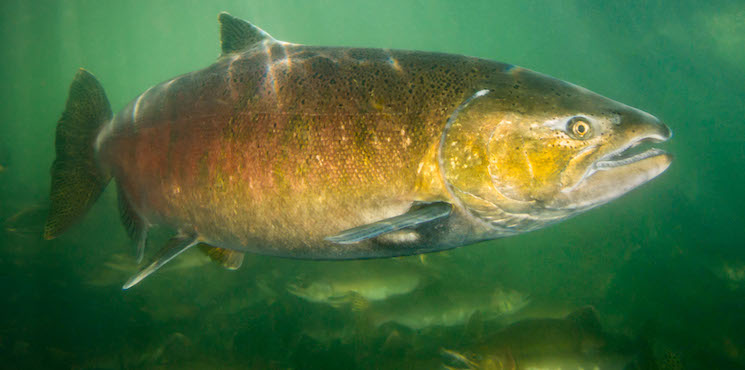
Chinook Salmon
On July 2nd, Island Fisherman magazine received the following press release from the PFA which explains the context:
We are rallying together because…
1. Closing the public Chinook fishery is not a recovery plan!
If the Government of Canada and DFO were truly concerned about pacific wild salmon, DFO would have already implemented a detailed recovery plan for certain stocks of endangered Fraser River Chinook salmon.
DFO has known of these stocks of concern for more than 15 years but have made little if any investment in their recovery, instead placing that burden on public fisheries. Restricting and closing public access to Chinook is NOT a recovery plan.2. All Chinook currently raised in hatcheries MUST be adipose clipped!
At this time only 10% of hatchery chinook are marked (marked means anglers can identify hatchery fish because the adipose fin has been removed prior to release from the hatchery).We are asking that all Chinook currently raised in hatcheries be adipose clipped. The precedent for using adipose clipped salmon for part of a broad-based recovery plan has been established, as the public can currently retain adipose clipped coho salmon.This allows selective retention of hatchery coho while releasing wild fish to protect stocks of concern where necessary. This strategy should be applied to hatchery Chinook salmon as well!
Adipose clipping hatchery reared Chinook for retention allows significantly more wild chinook to return to their rivers to spawn because they can be released if encountered in the public fishery. This management approach can accelerate the recovery of chinook stocks of concern while sustaining important public fisheries up and down the coast of British Columbia.
Please join us in our rally to support a recovery plan for Chinook stocks of concern and the mass marking of all Chinook salmon!
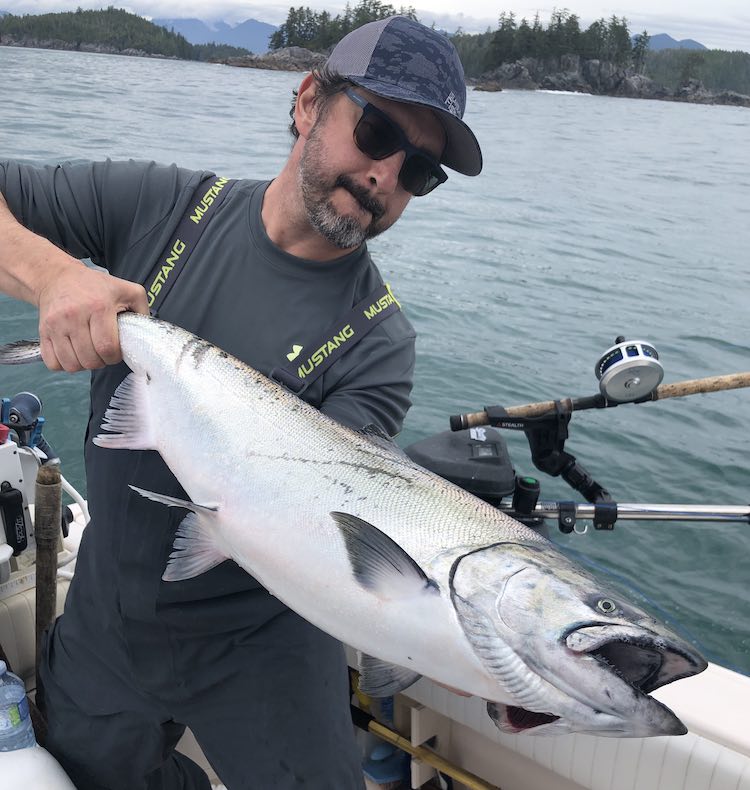
Island Fisherman Magazine Publisher and Sport Fisherman Joel Unickow, with a Hatchery Chinook
6 Comments
Leave A Comment
Visit the Store
$34.99
$34.99
Featured Catch
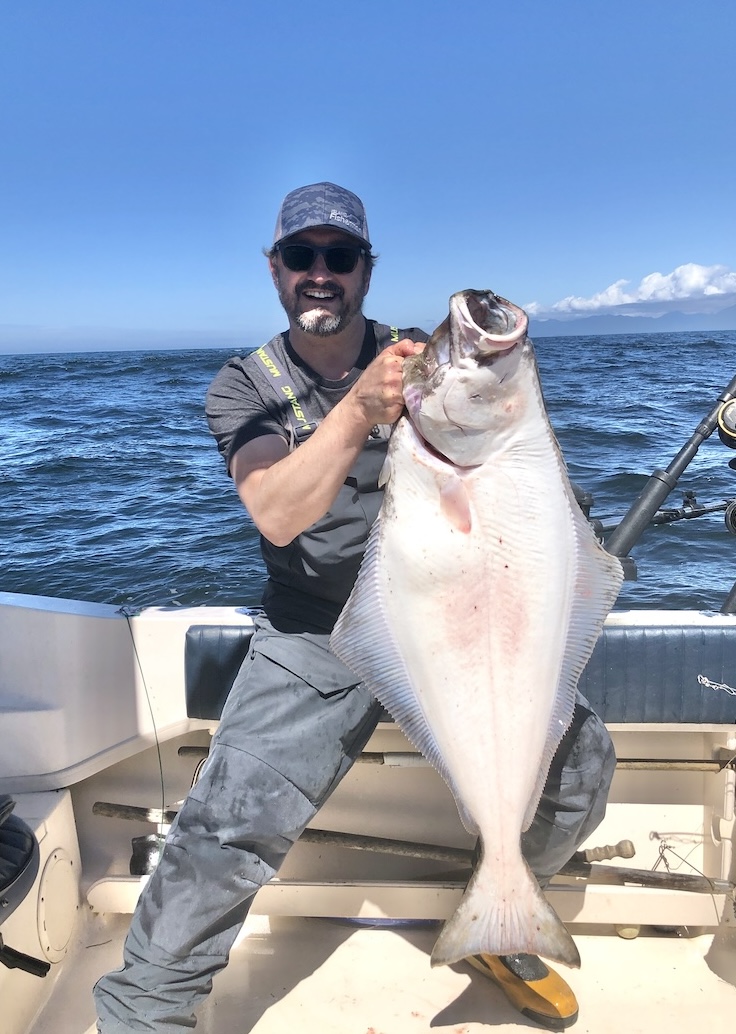
Joel Unickow halibut (Photo: Rob Frawley Lucky Strike Sportfishing Tofino)
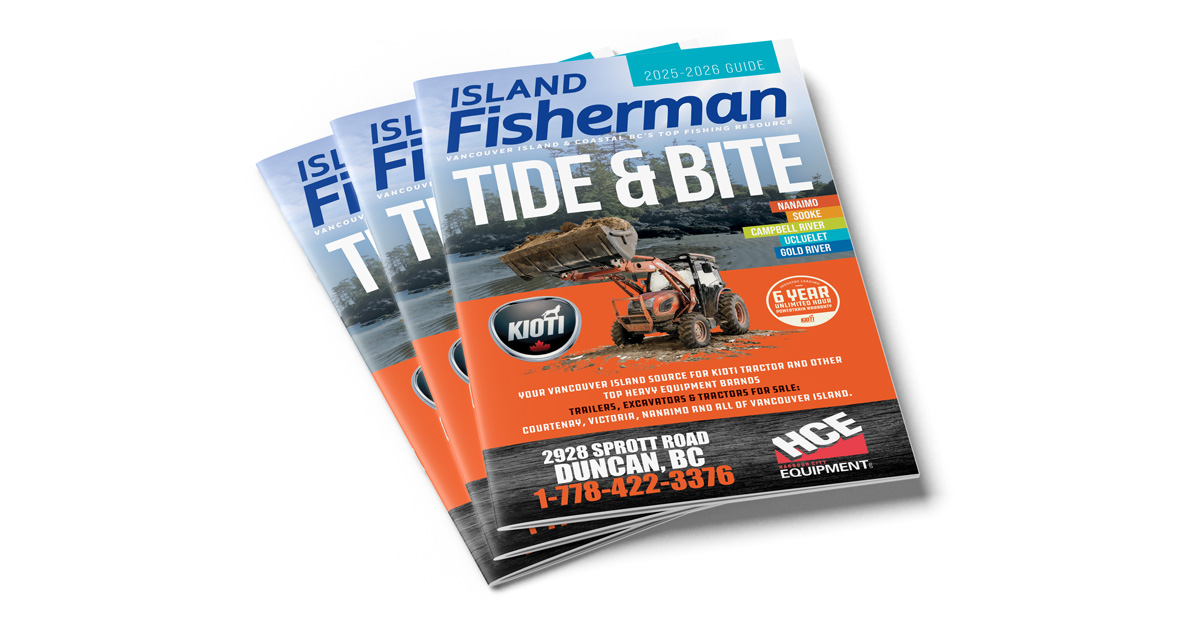
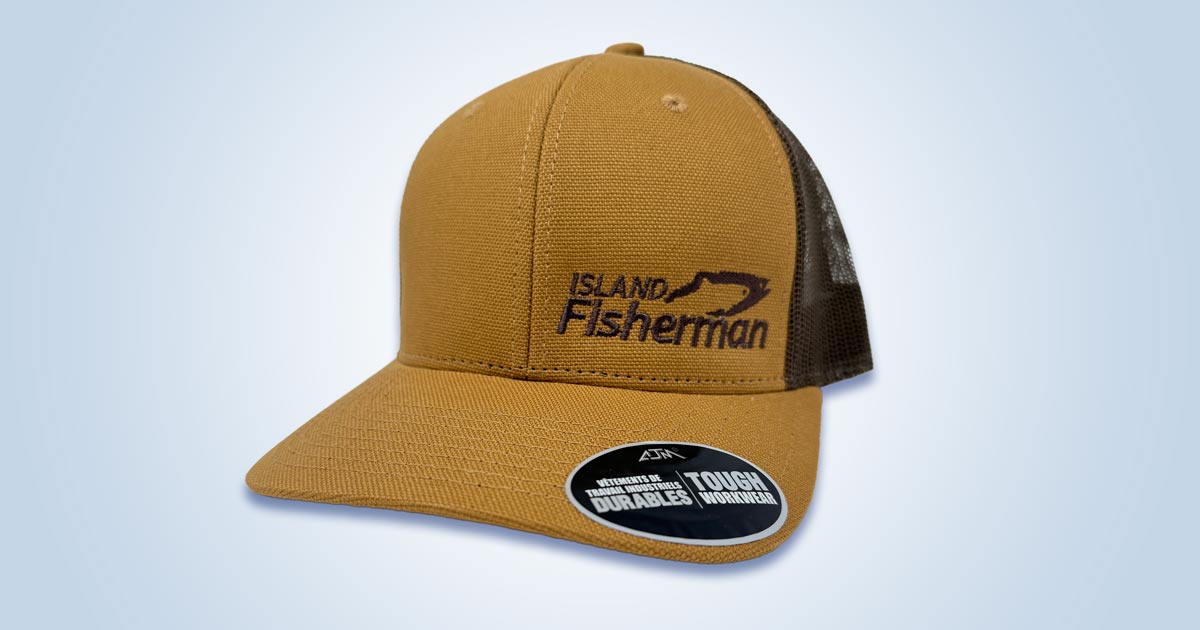
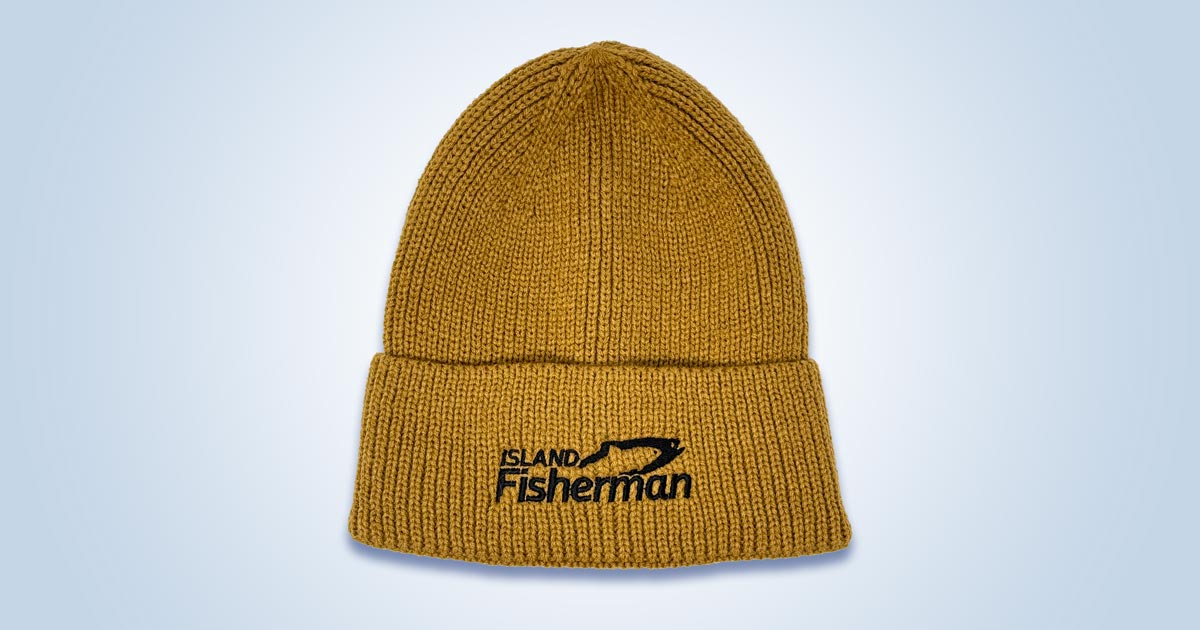
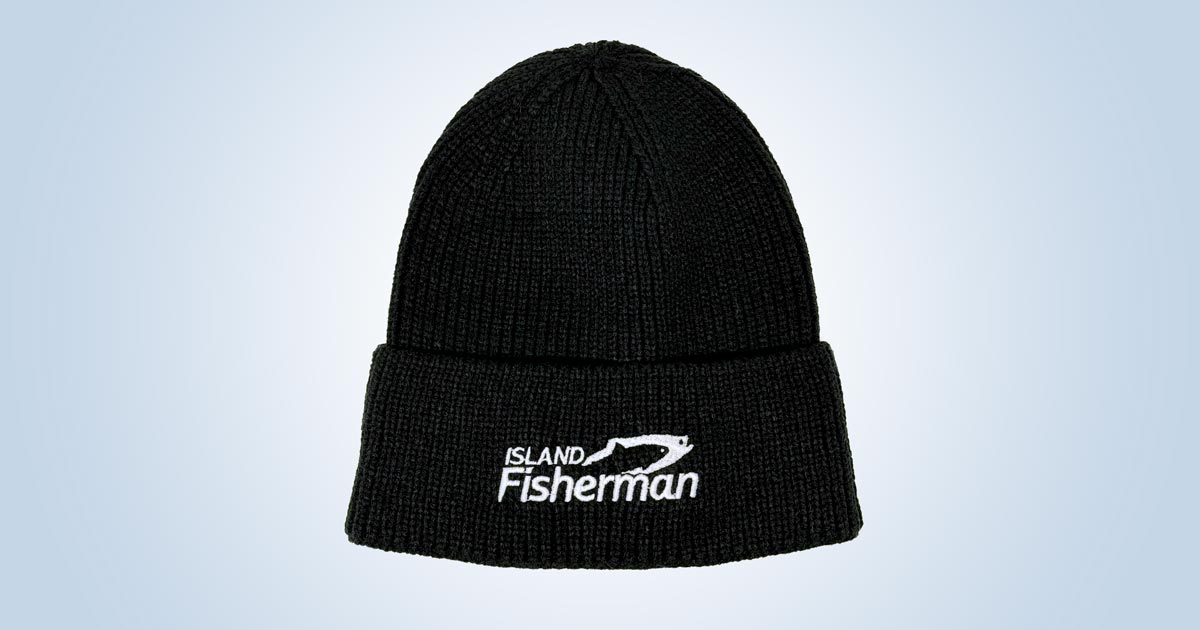
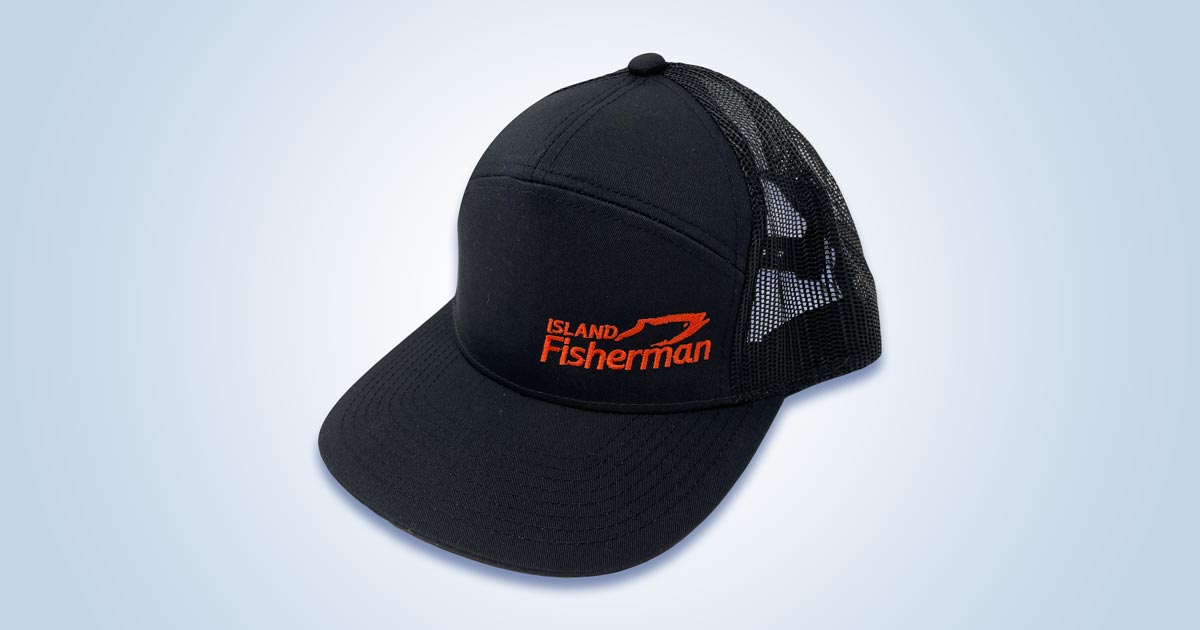
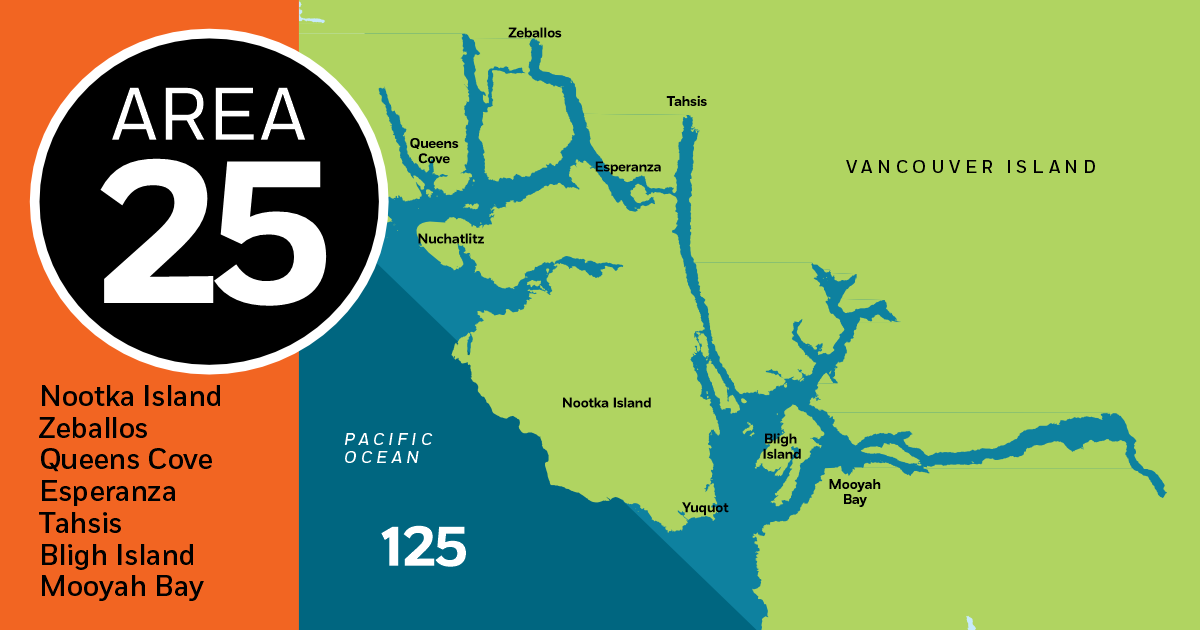
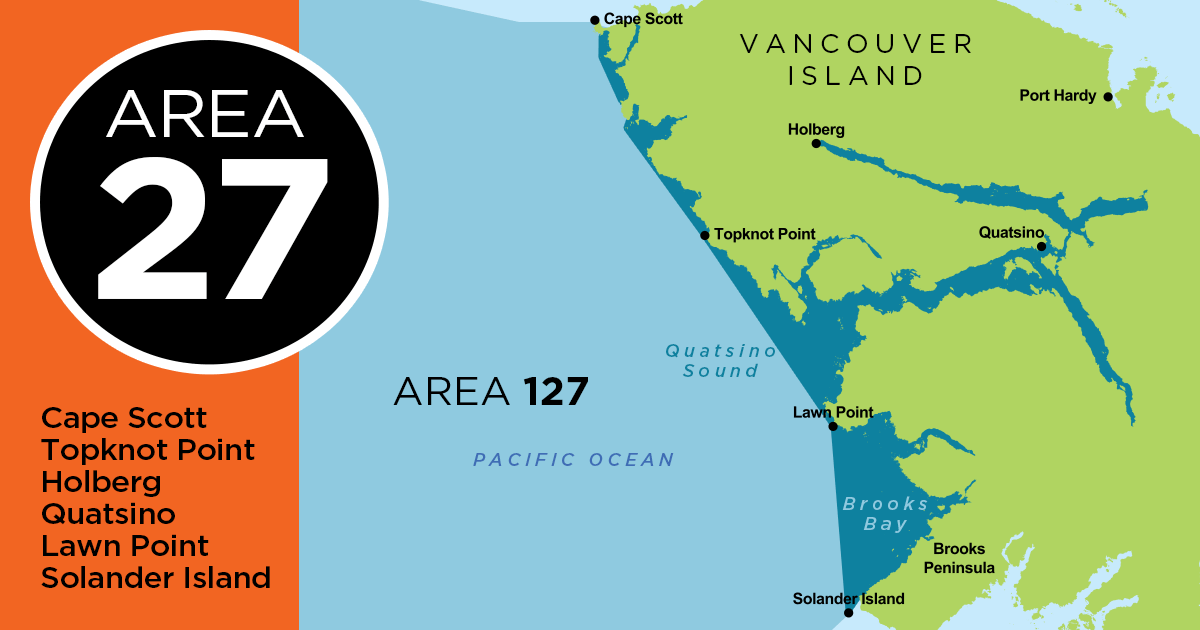
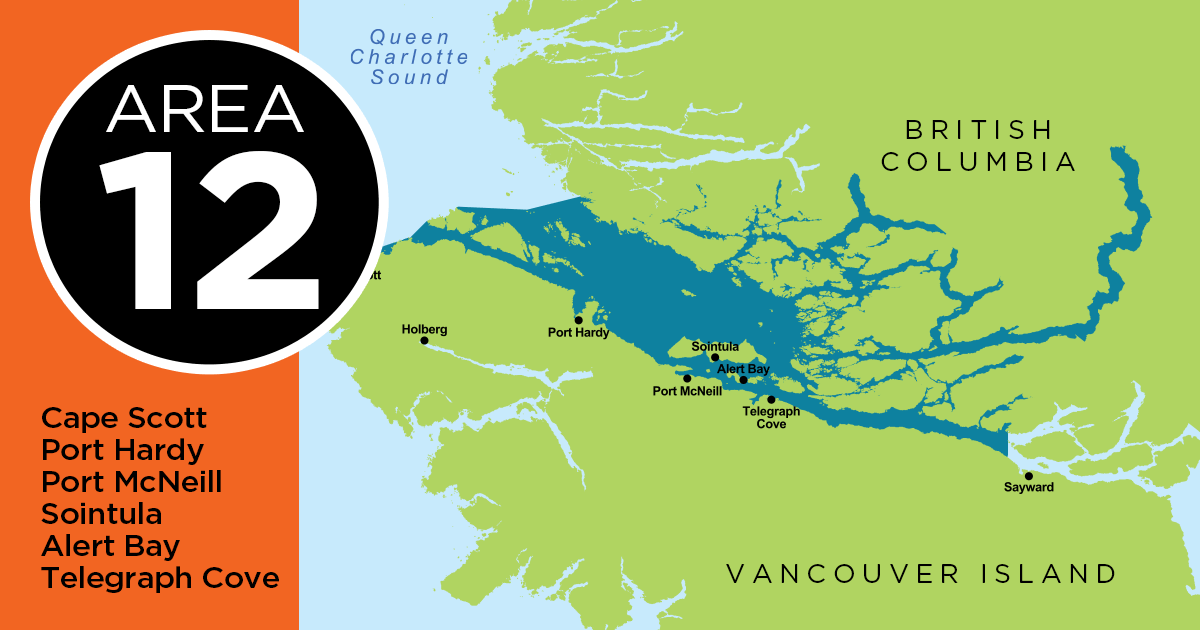
Recreational fishermen do not fit in the federal fisheries agenda. There is a progressive government plan to extract our right to the resource.
Thats the way it is
Sounds like you’ve given up the fight, so glad their is many positive people brining these issues up through gatherings like this, writing letters, making calls and donating their time to radio, really great to see!!
I think they should charge more for a chinook stamp on our fishing license and use the money to properly raise hatchery chinook, clip them, and let the public fish for them. how frikkin hard is that?
Get the gillnetts out of the river that’s the biggest controllable threat but race card would come up and we all now how that goes these days!!!!
Sorry men, our fishing days are numbered.
This scarce resource is better left fir the government to use as a political chip or for commercial interests.
All we as recreational fisherman are doing is causing “man made global warming” by participating in our sport, or contributing to animal cruelty.
Its time to lay our fishing rods down and pick up garden hoes for our new pastime, gardening.
How many recreational salmon licenses are sold every year? I’ve got mine every year for the past 6 years and I’ve been fishing from shore and average 3 salmon a year.. over 100 hrs of fishing each summer and I can’t keep a hatchery fish after I’ve hiked east sooke park to get where the fish are almost having a Jammer along the way.. only 10% of chinook are clipped and I can’t keep a clipped fish after the effect I put into this.. 🤔 talk about sh#tting on the little guy…